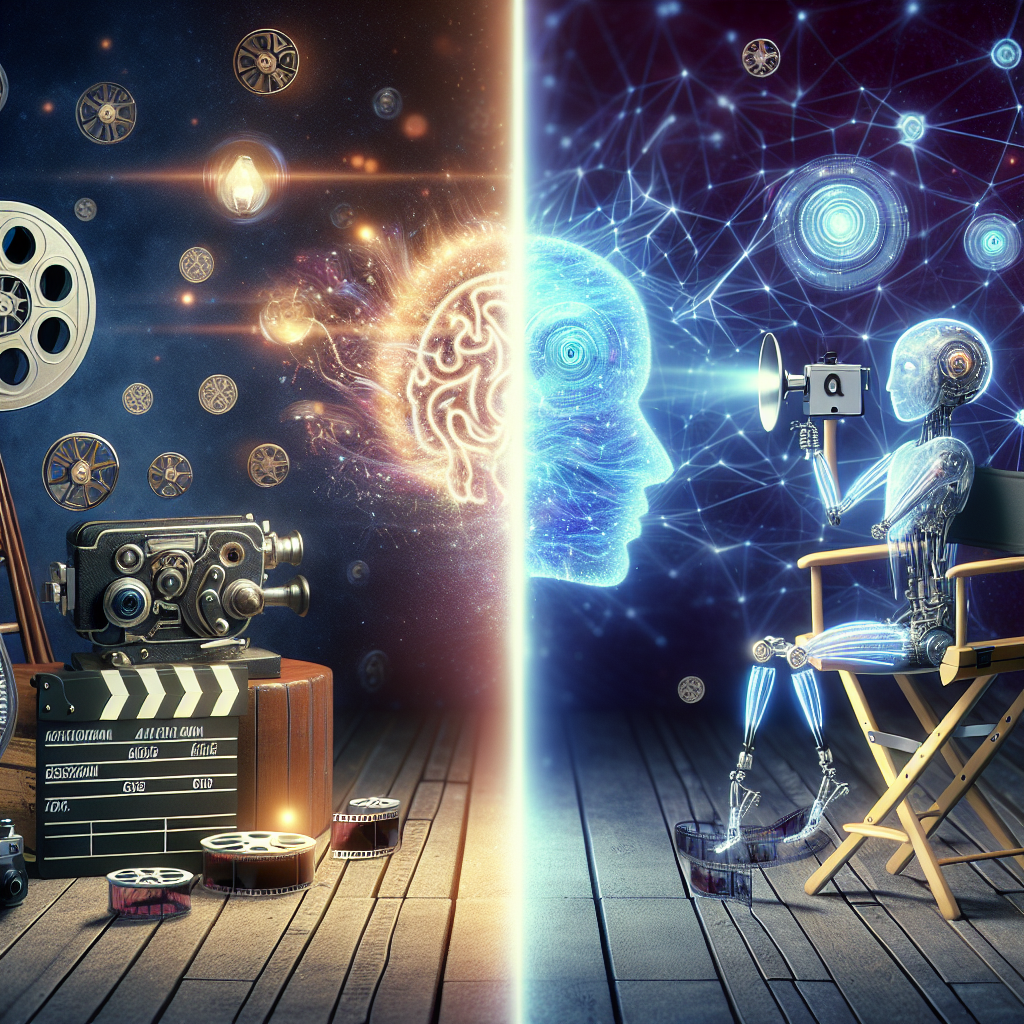AI and Film: How Technology is Changing the Industry
The film industry has always been at the forefront of technological advancements, constantly pushing the boundaries of what is possible on screen. From the invention of sound in the 1920s to the rise of computer-generated imagery (CGI) in the 1990s, technology has played a crucial role in shaping the way films are made and consumed. In recent years, artificial intelligence (AI) has emerged as a powerful tool that is revolutionizing the way films are produced, marketed, and even watched.
AI in film production
One of the most significant ways in which AI is transforming the film industry is in the production process. AI-powered tools are being used to streamline workflows, automate repetitive tasks, and enhance creative decision-making. For example, AI algorithms can analyze scripts and provide insights into character development, plot structure, and dialogue, helping filmmakers to refine their storytelling and improve the overall quality of their films.
AI is also being used to generate visual effects and animations, reducing the time and cost involved in creating complex scenes. By using machine learning algorithms, filmmakers can train AI models to recognize patterns in data and generate realistic images and animations that would be difficult or time-consuming to create manually. This technology has already been used in films like “The Lion King” and “Avengers: Endgame,” where AI was used to create photorealistic animals and enhance the visual effects.
AI in film marketing
In addition to its role in film production, AI is also transforming the way films are marketed and distributed. AI-powered algorithms can analyze audience data, identify trends, and predict consumer behavior, helping studios to target their marketing efforts more effectively. For example, AI can analyze social media data to identify key influencers and target audiences who are most likely to be interested in a particular film, allowing studios to tailor their advertising campaigns to reach the right people at the right time.
AI is also being used to personalize the viewing experience for audiences, with streaming services like Netflix and Amazon Prime using AI algorithms to recommend films and TV shows based on users’ viewing habits and preferences. By analyzing data on viewers’ viewing history, ratings, and preferences, AI can suggest content that is tailored to individual tastes, helping audiences to discover new films and filmmakers that they may not have otherwise encountered.
FAQs about AI and Film
Q: How is AI being used in film production?
A: AI is being used in film production to streamline workflows, automate repetitive tasks, and enhance creative decision-making. AI algorithms can analyze scripts, generate visual effects, and animations, and improve the overall quality of films.
Q: How is AI being used in film marketing?
A: AI is being used in film marketing to analyze audience data, identify trends, and predict consumer behavior. AI-powered algorithms can target marketing efforts more effectively, personalize the viewing experience for audiences, and recommend films based on individual preferences.
Q: What are some examples of AI in film production?
A: AI has been used in films like “The Lion King” and “Avengers: Endgame” to create photorealistic animals, enhance visual effects, and automate tasks that would be time-consuming to do manually.
Q: How is AI changing the way films are distributed?
A: AI is changing the way films are distributed by personalizing the viewing experience for audiences, recommending content based on individual preferences, and targeting marketing efforts more effectively.
Q: What are some challenges of using AI in the film industry?
A: Some challenges of using AI in the film industry include the potential for bias in algorithms, the need for human oversight and creativity, and the ethical implications of using AI to generate content.
In conclusion, AI is transforming the film industry in profound ways, from production to marketing to distribution. By harnessing the power of AI, filmmakers can streamline workflows, automate tasks, and enhance creative decision-making, ultimately creating more engaging and personalized experiences for audiences. As technology continues to evolve, it is clear that AI will play an increasingly important role in shaping the future of film.

